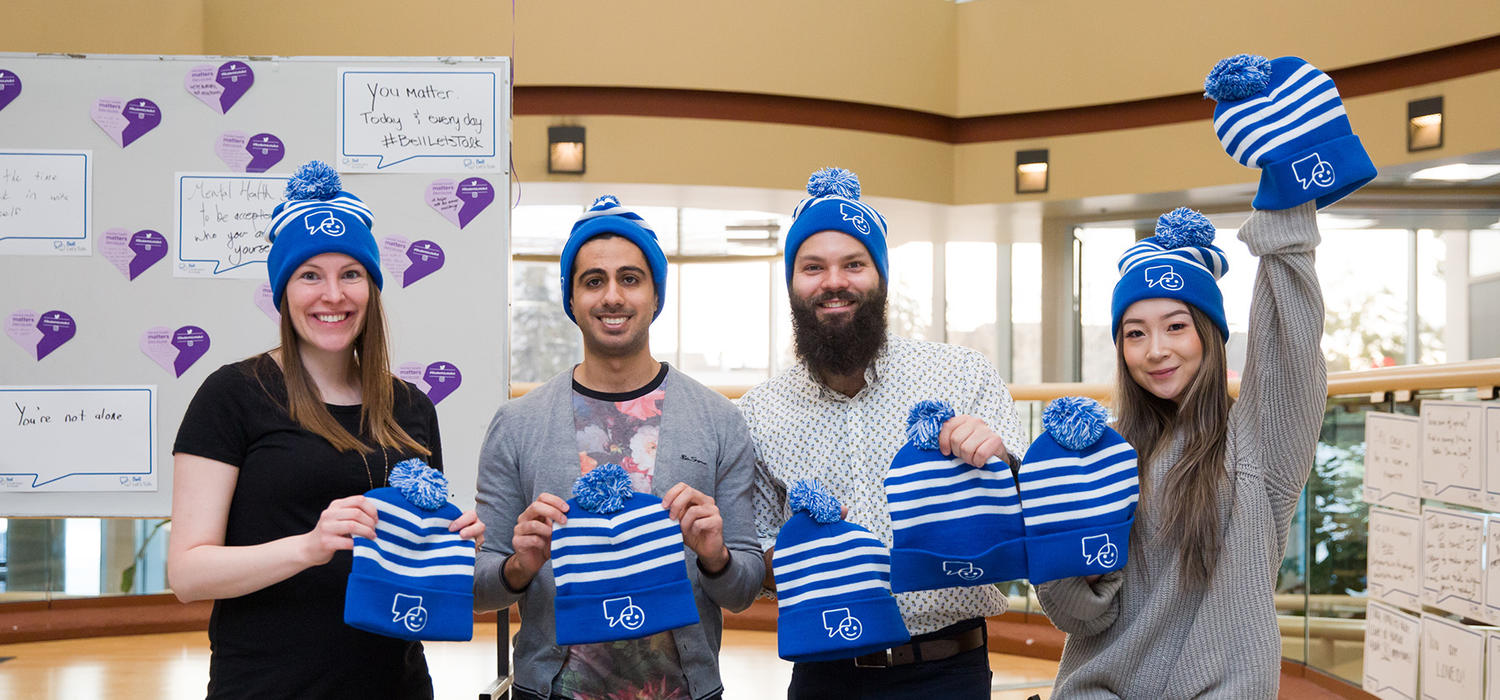Jan. 28, 2020
Make your mark for Bell Let’s Talk Day’s 10-year anniversary

By now, it’s fairly well-known that for every applicable text, call, tweet and social media video view on Bell Let’s Talk Day, Bell will contribute five cents to mental health programs in Canada. This might not sound like a lot, but add those cents up since the day’s inception in 2010 and you have an impressive number.
Bell has committed more than $100 million to mental health initiatives over the past 10 years, including $15.7 million in funding to children and youth, and $1.95 million in funding to Indigenous communities. So how do they decide how to allocate these funds?
Bell Let’s Talk Day, taking place on Wednesday, Jan. 29 this year, is built on four pillars, which helps them guide funding: anti-stigma initiatives, improving access to care, supporting world-class research, and leading by example in workplace mental health. For Dr. Andrew Szeto, Campus Mental Health Strategy director, these pillars are a big reason why the UCalgary campus participates in Bell Let’s Talk Day.
“All four of these pillars are instrumental in progressing individual and collective resilience in mental health,” says Szeto. “Our own strategy addresses these areas in our own unique ways, from supporting innovative projects that reduce the stigma of mental illness, to increasing programs and services on campus for students, staff and faculty, to implementing the National Standard for Psychological Health and Safety in the Workplace.
"I hope that we can all find our own way of participating in Bell Let’s Talk Day and bringing the strategy to life on campus, whether that be sharing a message of hope, or taking the first step in seeking support for one’s own mental health. Every action counts.”
So how can you make the most of Bell Let’s Talk Day? We have four ideas for you.
Visit a Bell Let’s Talk booth
Leave a positive message about mental health, or read the ones already written, learn about on-campus supports, and grab a bright blue toque to add to your collection while you’re there! Booths are located on the first floor of the Taylor Family Digital Library (11 a.m. to 7 p.m.) and at Foothills campus in the HSC Atrium (8:30 a.m. to 2 p.m.).
Attend a film screening
The Mathison Centre for Mental Health Research and Education is hosting a free screening of The Aviator at the Plaza Theatre — an Oscar-winning film about successful aviation pioneer Howard Hughes, who dealt with a mental illness throughout his life. Following the screening, there will be a panel discussion on obsessive-compulsive disorder (OCD).
Check in with yourself and those around you
‘When it comes to mental health: every action counts.’ What does the central message for Bell Let’s Talk Day mean to you? From checking in on a friend or yourself, we encourage our campus to take action today and every day. Explore supports for yourself on campus here, or if you’re concerned about a friend or colleague, check out this guide for how to navigate helping.
Help grow mental health funding
Add to Bell’s funding contributions in your own way. Remember, for every interaction, Bell donates five cents to mental health programs across the country. Interactions can be: every tweet and retweet using #BellLetsTalk or every text and call made from your device on the day if you’re a Bell wireless customer. Feel like listening instead? Watch the Bell Let’s Talk video on any of Bell’s social media platforms. Every view counts as an interaction, too.
Bell Let’s Talk Day activities are supported by Staff Wellness, Student Wellness Services and the Campus Mental Health Strategy. The University of Calgary’s Campus Mental Health Strategy is a bold commitment to the importance of mental health and well-being of our university family. Our vision is to be a community where we care for each other, learn and talk about mental health and well-being, receive support as needed, and individually and collectively realize our full potential. Find support and connect to the strategy.




